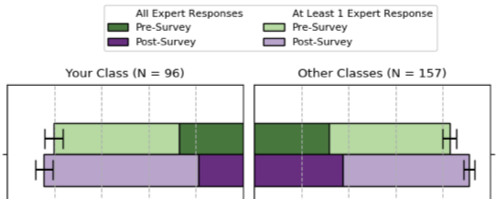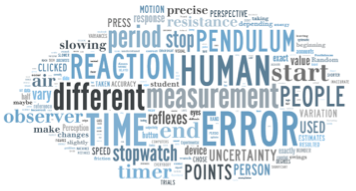Our research focuses on introductory college-level physics labs. What do students learn? How can we help them learn better? And what does learning in the lab offer that learning in lecture does not? We have been developing labs that introduce students to the nature of scientific measurement while also developing a conceptual understanding of measurement and uncertainty, a procedural toolbox for handling and analyzing data, and critical thinking behaviours to reason about data scientifically. We are generally interested in how student epistemologies interact with their learning in the lab and how to foster more productive epistemologies and attitudes. In the future, we plan to examine how the pedagogy we have developed transfers to other disciplines, higher-level lab courses, and to undergraduate research experiences. We are also interested in gender and diversity issues in the lab, given that students spend a lot of their time in a lab working on computers and hands-on experiments. We have also worked closely with our teaching assistant professional development program, evaluating and improving how we train our teaching assistants and prepare them for their duties in the classroom as well as their potential future careers as instructors. We highlight a number of particular projects below.
Physics Lab Inventory of Critical thinking (PLIC)

The Physics Lab Inventory of Critical thinking (PLIC) is a closed-response survey designed to assess how students critically evaluate experimental methods, data, and models. We are currently in the process of validating the instrument through qualitative interviews and statistical validity and reliability assessments. Interested in using the PLIC? Read more here!
Rethinking Introductory Physics Lab Courses
We are currently supported by an Active Learning Initiative grant (from the Cornell University College of Arts and Sciences) to evaluate and rejuvenate the introductory physics lab courses at Cornell University. This project will impact 6 different introductory lab courses over the next 3-4 years.
What are labs good for?

There are a number of additional projects on the go related to the efficacy of labs. For example, how do labs help or hurt student understanding of measurement and uncertainty? How does this understanding impact how they think about measurement and uncertainty in future lab courses or in quantum mechanics for that matter? What do students get out of research experiences that they could be experiencing in labs earlier? What is the benefit of a hands-on activity compared with simulation or even virtual reality?

